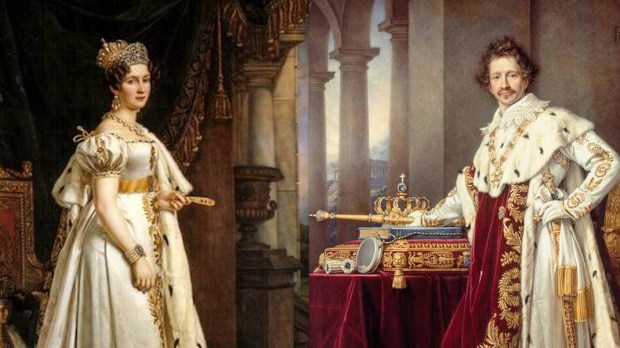The very first Oktoberfest was held in Munich on this day, October 12, in 1810. It all began with a royal wedding.
Long before the nuptials of people like Meghan Markle and Prince Harry could be beamed around the world by television or internet, Crown Prince Ludwig (later King Ludwig I) invited the citizens of Munich to his wedding to Princess Therese of Saxe-Hildburghausen. The people were invited to view the festivities held on the fields in front of the city gates to celebrate the royal event. Those fields were named Theresienwiese (“Theresa’s Meadow”) in honor of the Crown Princess, and have kept that name ever since. Locals have since abbreviated the name simply to the “Wiesn,” and locals often refer to the Oktoberfest by that term.
Several days after the wedding, on October 18, there were horse races to honor the newlyweds. The decision to repeat the horse races and celebrations the following year launched what is now the annual Oktoberfest.
Since then, the tradition of horse racing has been supplemented with all kinds of other activities, such as parades of children in traditional dress and the horse teams owned by breweries, agricultural displays; tree climbing; carnival rides; folk dancing, and brass bands.
Oh, and beer tasting. Only beer conforming to the Reinheitsgebot, the German Purity Law, and brewed within the city limits can be served at the Oktoberfest. In 2017, the festival officially served 6.9 million liters of beer, enough to fill two and three-fourths Olympic-size swimming pools.
Wars, disease and economic distress have interrupted the Oktoberfest several times: the Napoleonic War in 1813, the Austro-Prussian in 1866, the Franco-Prussian in 1870, the First World War from 1914-1918, and the Second World War, 1939-1945; the cholera outbreak in 1854 and 1873, and heavy inflation in 1923 and 1924. The Nazis appropriated the celebration for their own purposes. After Hitler annexed Austria and won the Sudetenland in 1938, the Oktoberfest was renamed to “Großdeutsches Volksfest” (Greater German folk festival).
Sadly, the festival was also marred by what appeared to be domestic terrorism in 1980. A pipe bomb was set off near the main entrance, killing 13 persons and injuring 201. Authorities believe that a German right-wing extremist who was killed in the explosion, was the perpetrator.
By the way, if you go to Munich, for the Oktoberfest or anything else, you might wonder why the seal of the city portrays a man in a robe, holding a book in one hand. It’s a depiction of a monk. The first known settlement in the area, in the 12th century, was of Benedictine monks, giving the city its name, München, which means, “of the monks.”

